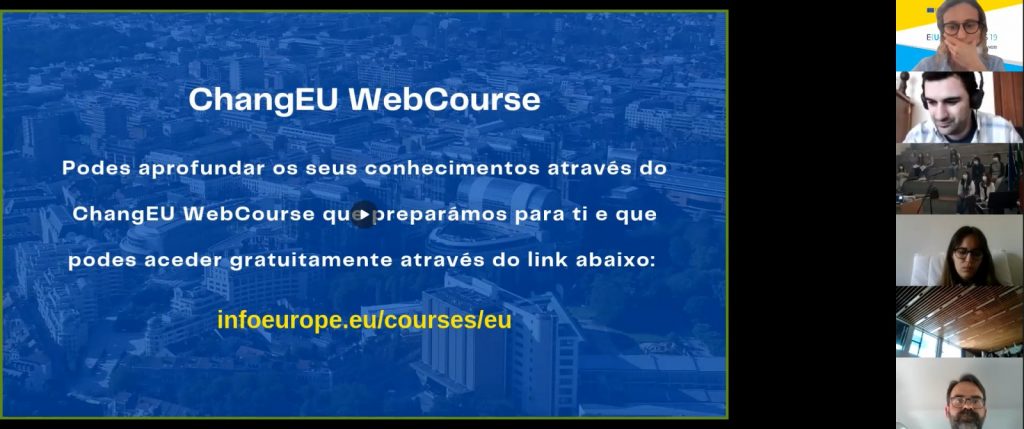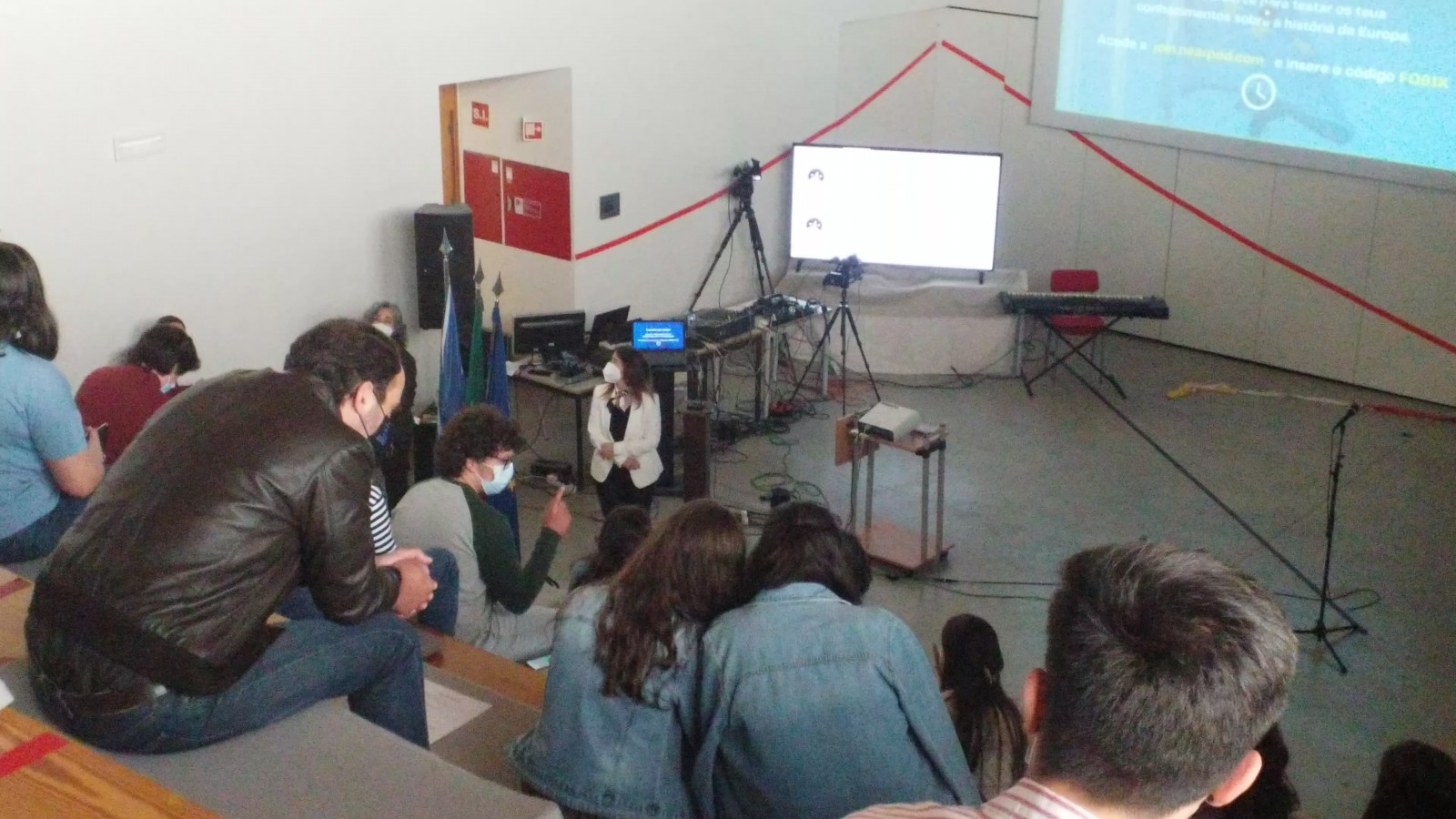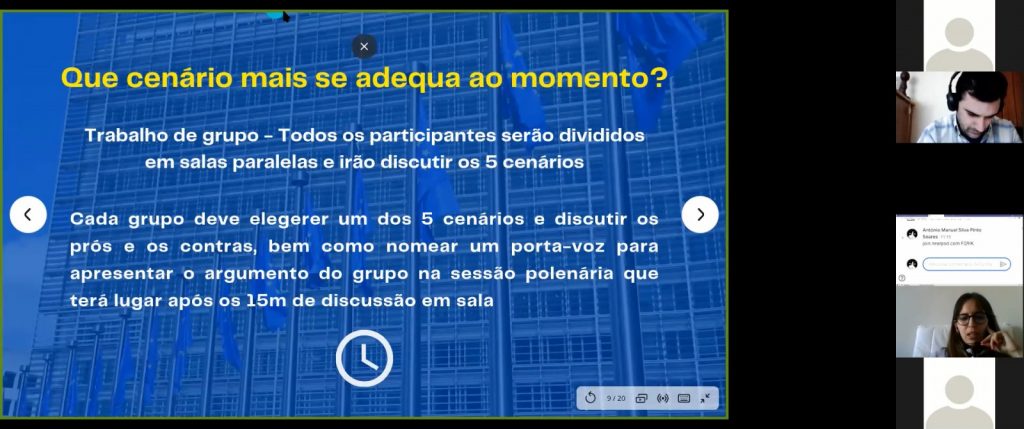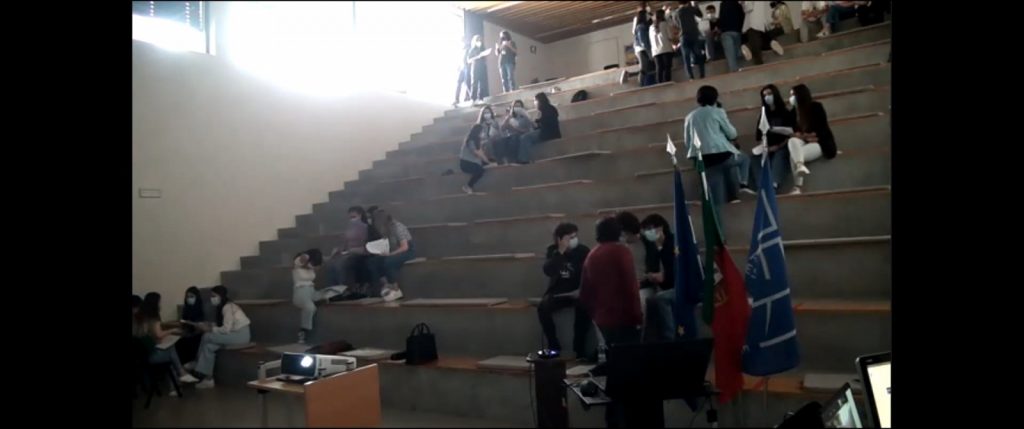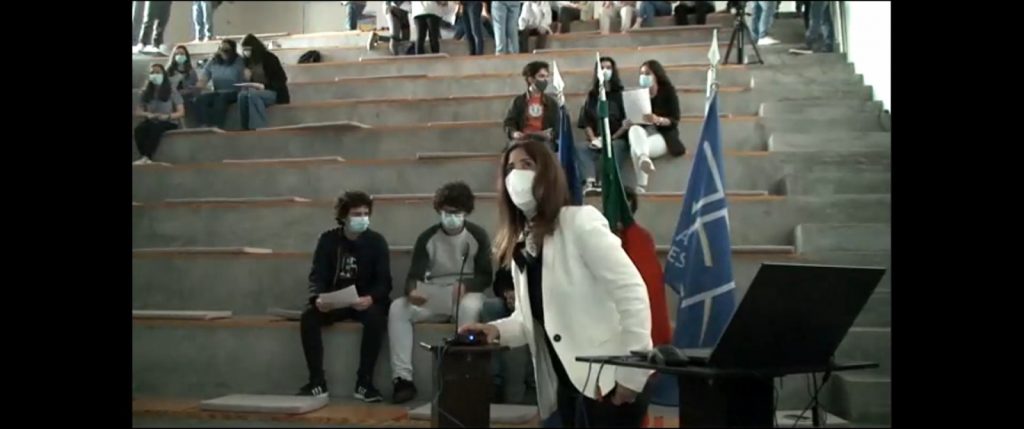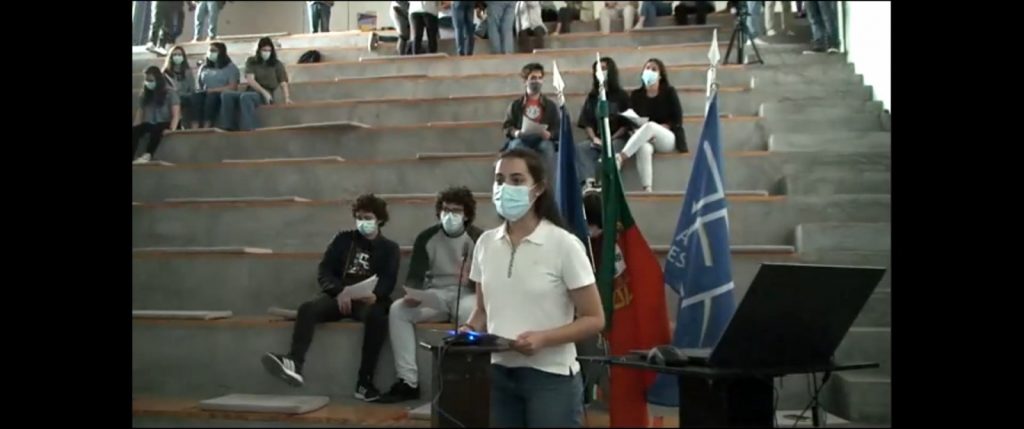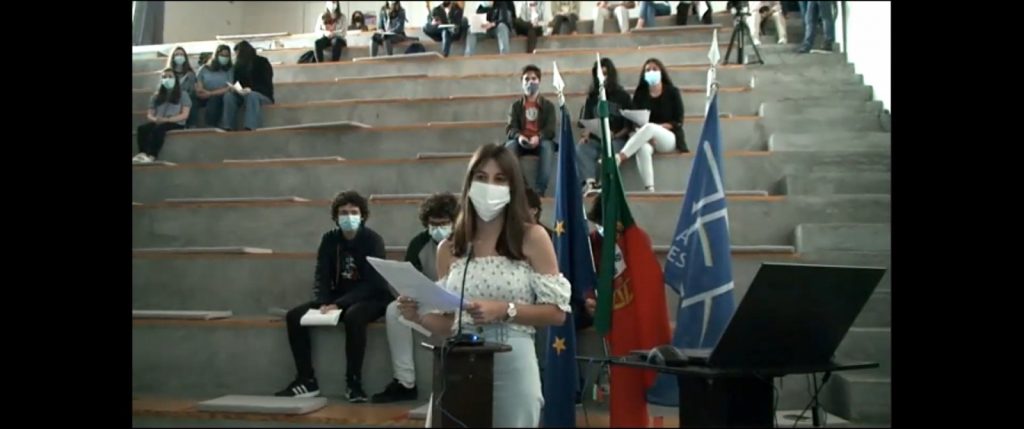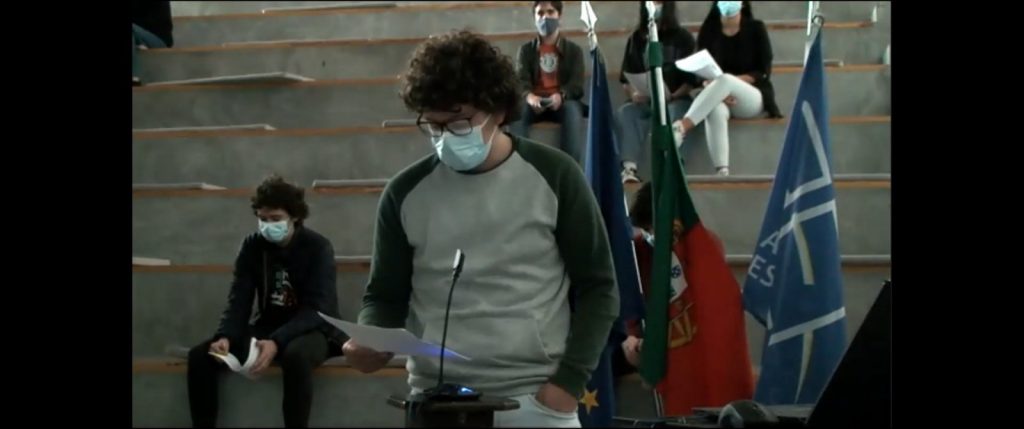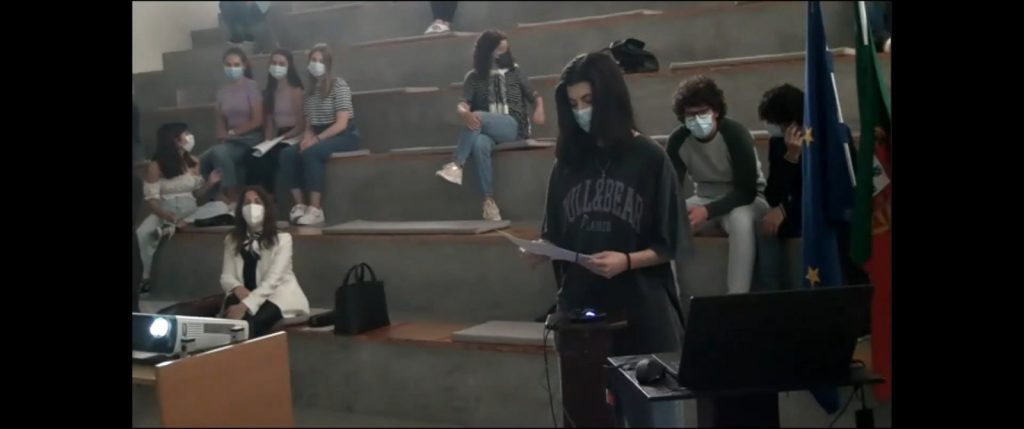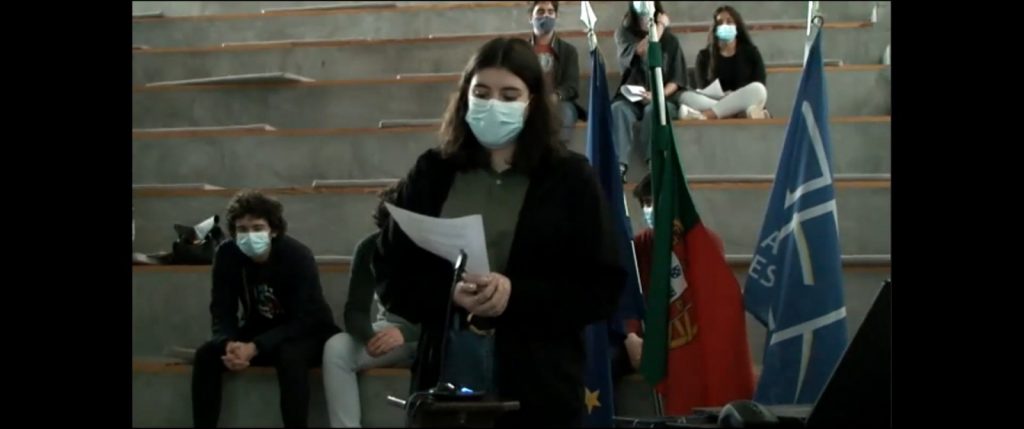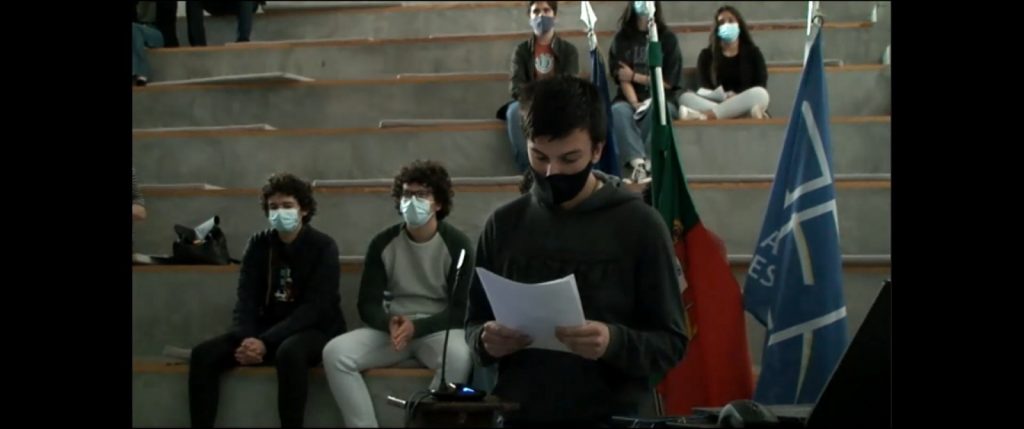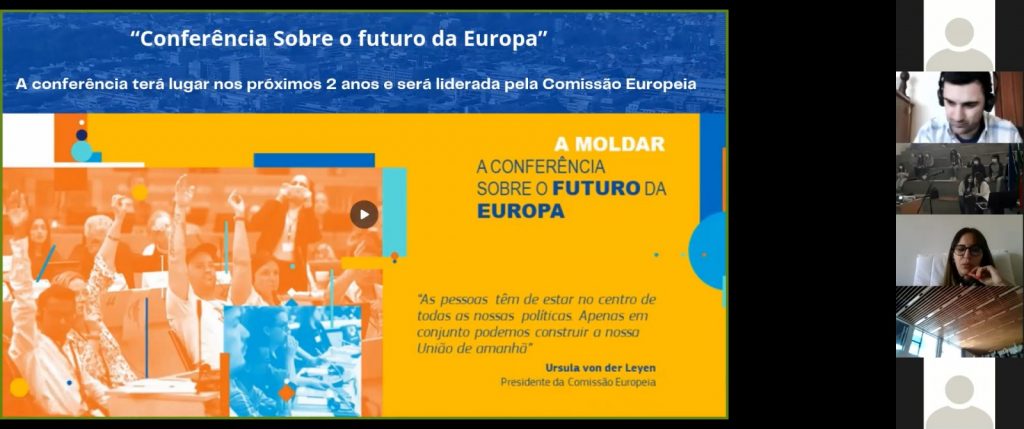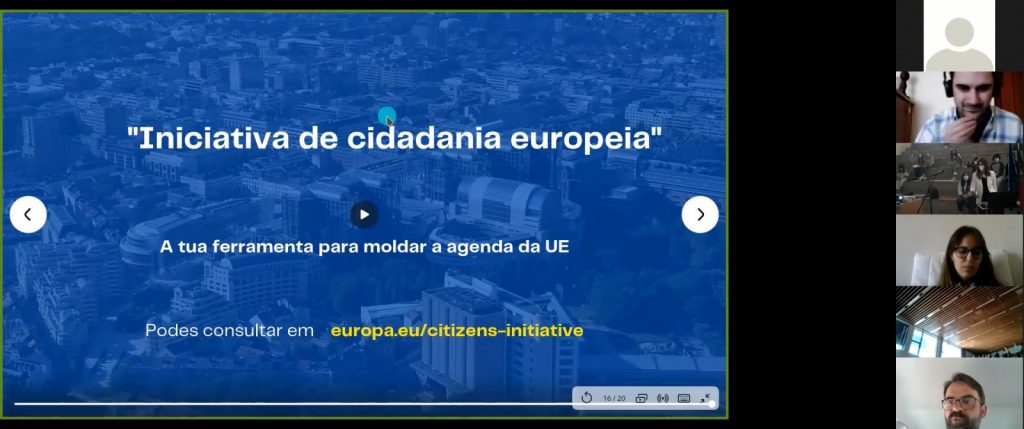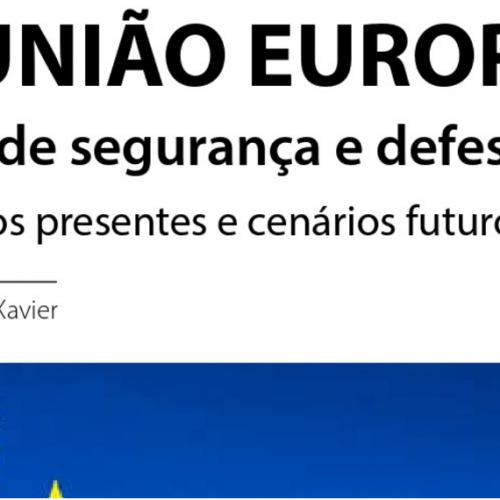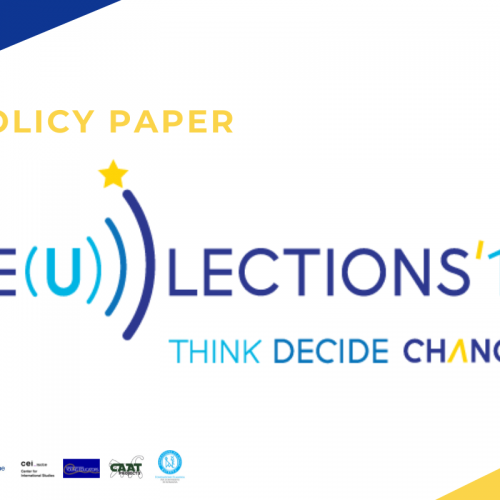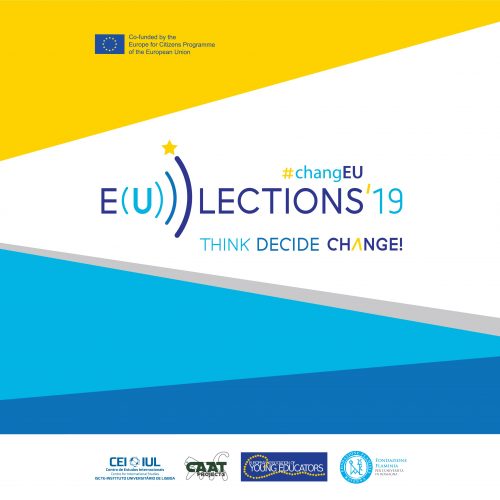On May, 28, 2021, EULECTIONS’19 partners joined the Agrupamento de Escolas de Arouca (Arouca cluster of schools) and the Associação Círculo Cultura e Democracia ( Association Culture and Democracy Circle ) to debate Europe. The EULECTIONS’19 event was integrated in the programme of the initiative “A nossa voz na Europa” (Our voice in Europe) that involved various activities with students, teachers and members of the community. This was a hybrid event with a part of the participants online and the majority at the school’s auditorium, following the health and security protocols. The event involved 43 citizens from the city of Arouca, Portugal.
During the workshop preparatory activities, in collaboration with the coordinator teacher, students from secondary education classes were introduced to the project theme and to some key documents. This process allowed the group to have a greater familiarity with the questions to be debated during the session and hopefully motivated them to engage with European themes before the next European elections in which most of them will be first time voters.
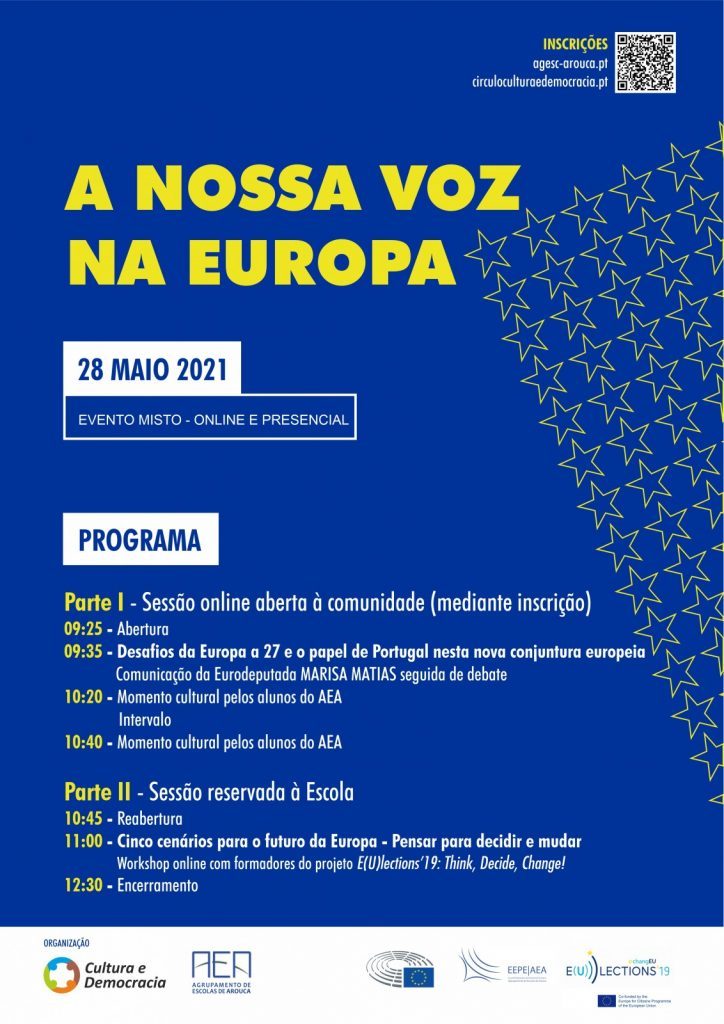
The workshop started with brief presentations by all the entities involved and an overview of the EULECTIONS’19 project and the workshop. We then invited participants to use their mobile phones and share the first word they associate with the EU and test their knowledge of the history of the European project through an online quiz.
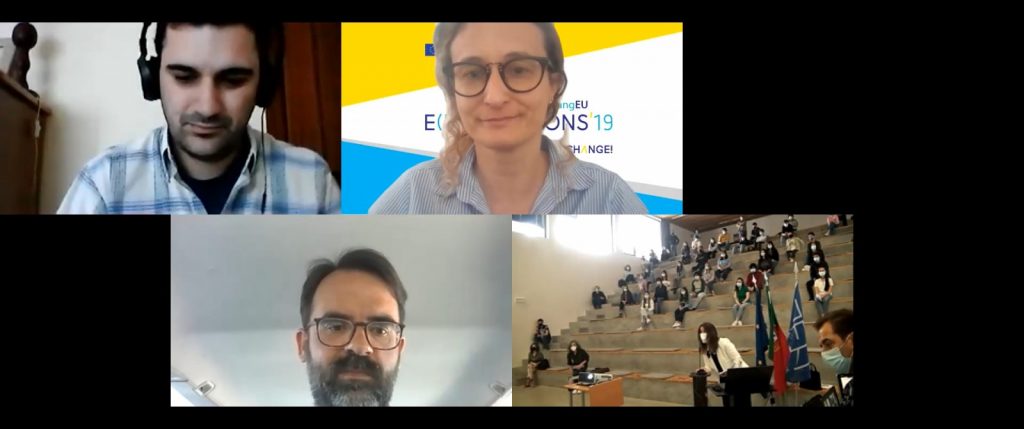
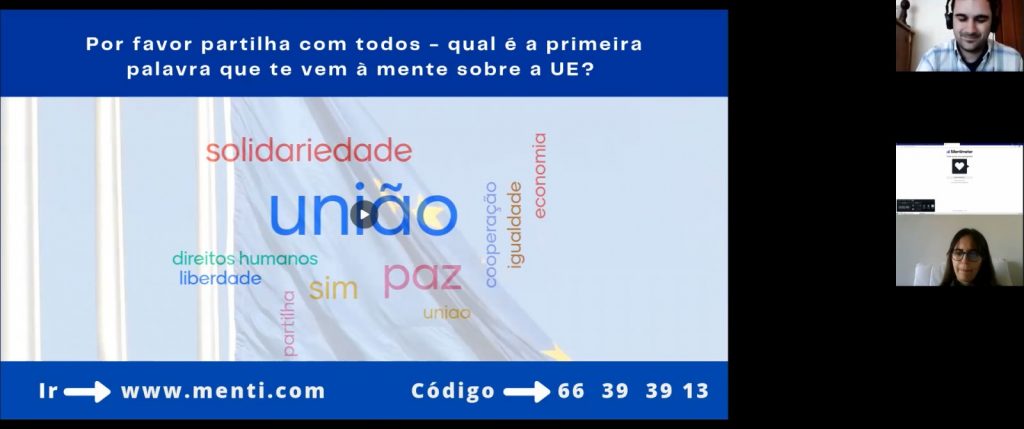
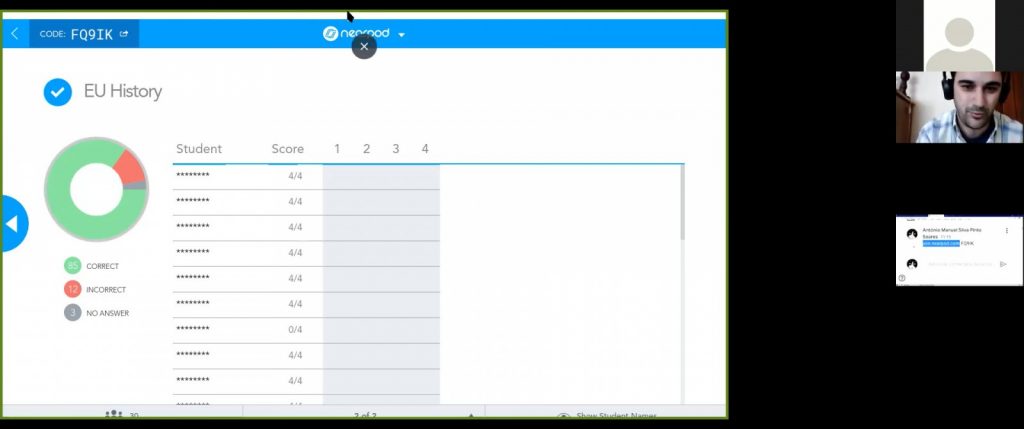
After the word cloud, where “union” took central stage, and a brief overview of EU’s history, we’ve moved to the discussion about its present and future.
The debate was introduced by a video and a short presentation about the “White Paper on the Future of Europe: Five Scenarios” followed by a group work. Participants were invited to organize in small groups, choose one of the five scenarios and reflect about its pros and cons. After the discussion, a representative from each group shared their main conclusions with the audience.
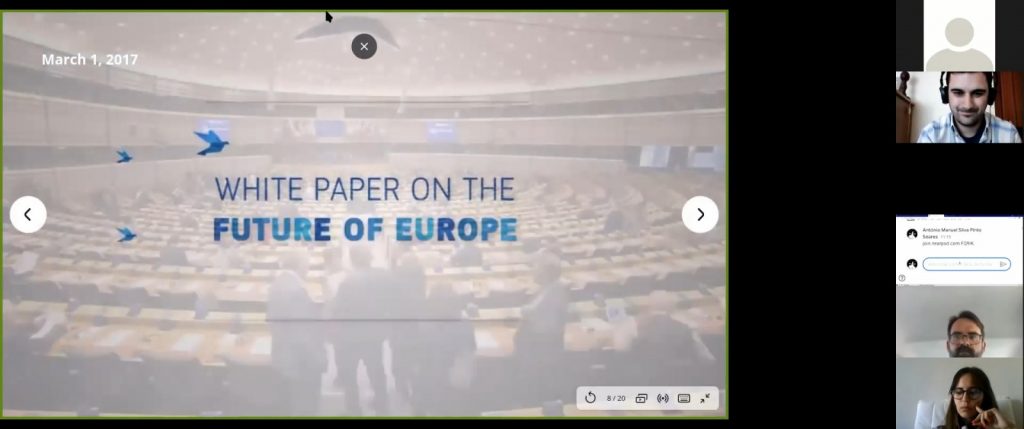
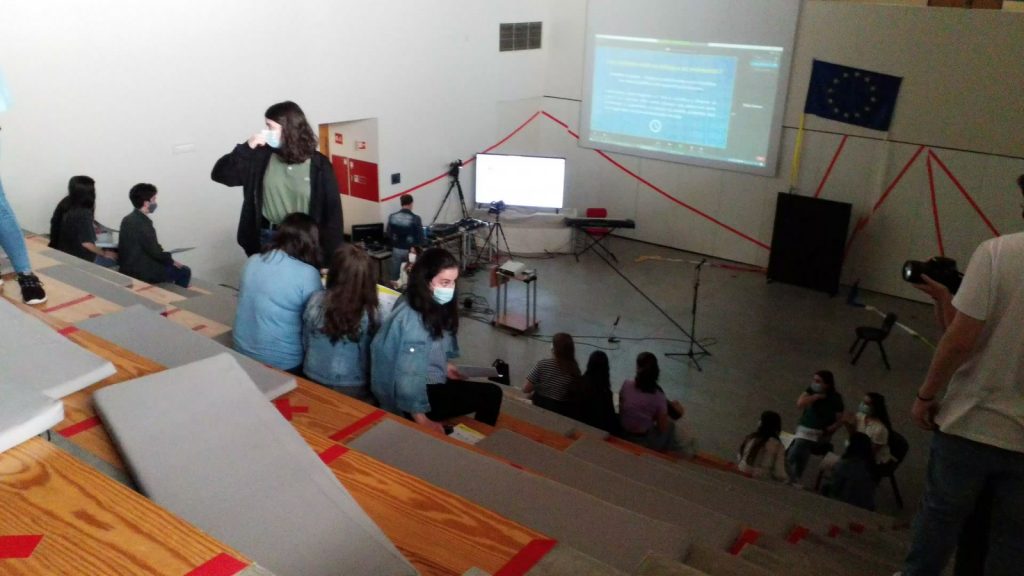
A group of participants considered that scenario 1, carrying on, would be the most suitable as it would ensure financial stability, improve the single market and respond to key strategic challenges in defence, security and the environment. In this scenario some EU challenges would remain unsolved, namely the difficulty to respond to urgent matters and to complex transnational problems due to member states’ diverse perspectives on those matters and some policy areas could be neglected.
Regarding the scenario 2, nothing but the single market, it could contribute to a more efficient market, improving competition and consumer choice but, at the same time, it would put at risk other policy areas that are important to EU citizens and also to the market.
For the participants that reflected on scenario 3, those who want more do more, considered that it could have advantages on policy areas where some states agree that the Union should do more, like employment, research, industrial development, security and defence. In this scenario, the main risk would be the increase of disparities and differences within the Union.
The group of participants that debated scenario 4, doing less more efficiently, concluded that it would be beneficial to achieve more in key policy areas like industry, commerce, security and climate change.
Following the participants’ reflection about the most ambitious scenario, doing much more together, it would transform decision making processes, transferring national decisions to the European level. The Union would also be responsible for citizens rights in various areas. This scenario would have as a key risk, the alienation of national groups that don’t recognize EU’s legitimacy or that don’t agree with increasing EU institutions’ powers.
After the collective reflection, we’ve invited the participants to vote on their individual preferred scenario for the future of Europe.
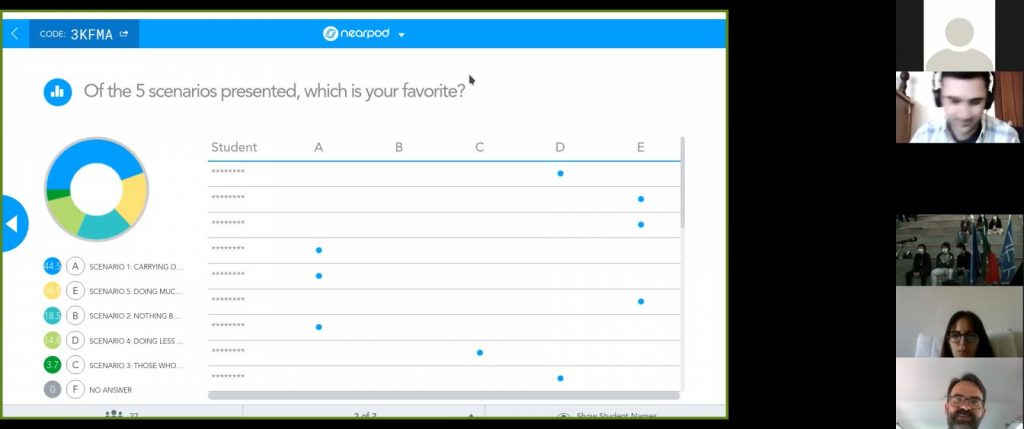
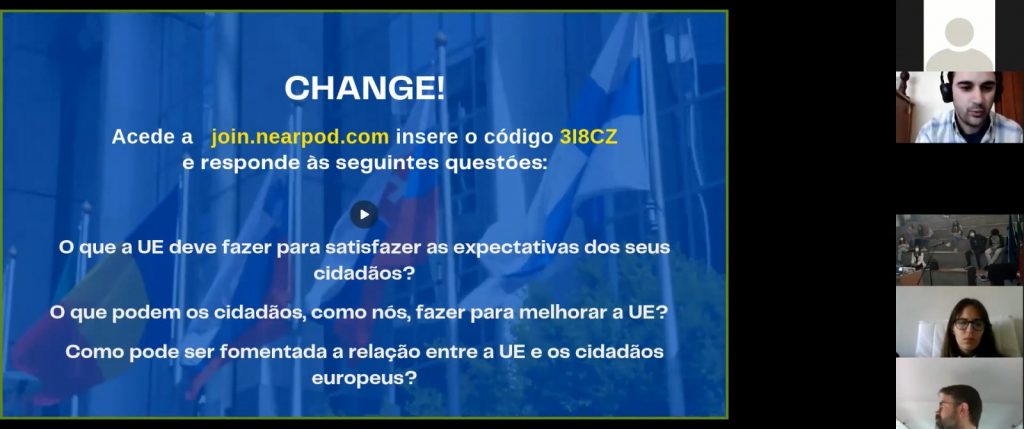
Following the debate about the scenarios for the future of the EU, the session was focused on ways to improve the relationship between European institutions and European Citizens. We’ve presented 3 questions to participants and invited them to brainstorm on 1) What can the Eu do to respond to its citizens’ needs? 2) What can citizens do to improve the EU? 3) How can we improve the relationship between the EU and European citizens? The suggestions presented were mainly to find ways to improve the union and cooperation between member states, listen to citizens’ perspectives and understand their real needs, provide more information about the Parliament’s discussions, increase opportunities for cooperation with citizens in an active and productive way.
Following the main discussions, we’ve shared with the participants two key EU initiatives through which they can take part in the shaping of the European project, its present and future, the Conference on the Future of Europe and the Citizens’ Initiative. Participants were also invited to keep learning about the EU and citizens’ participation through the ChangEU Webcourse.
